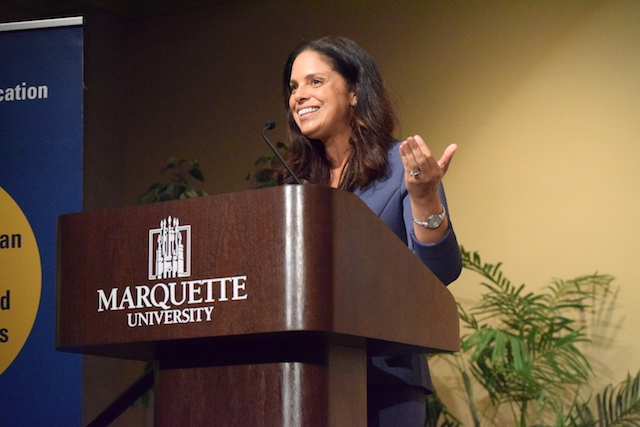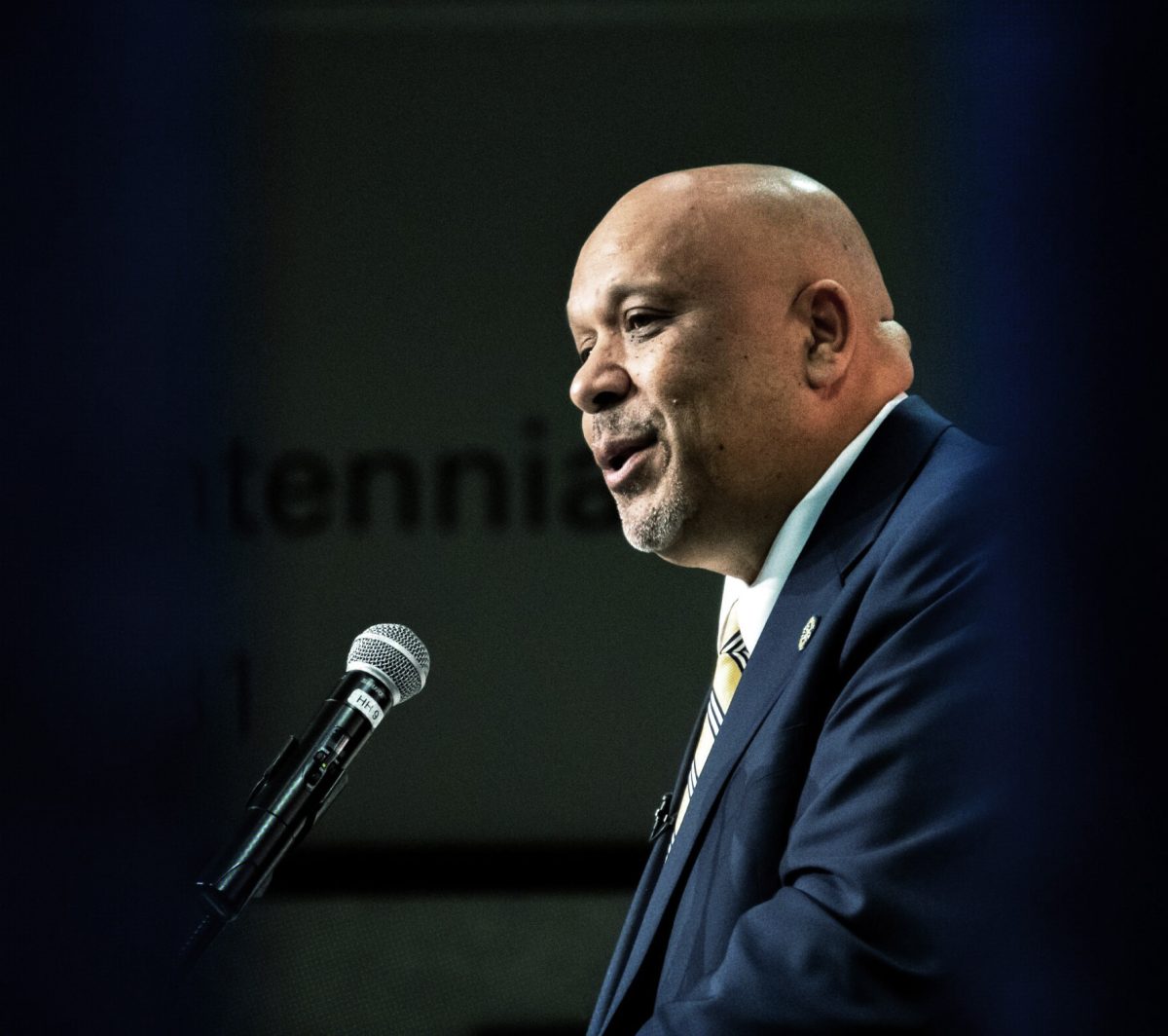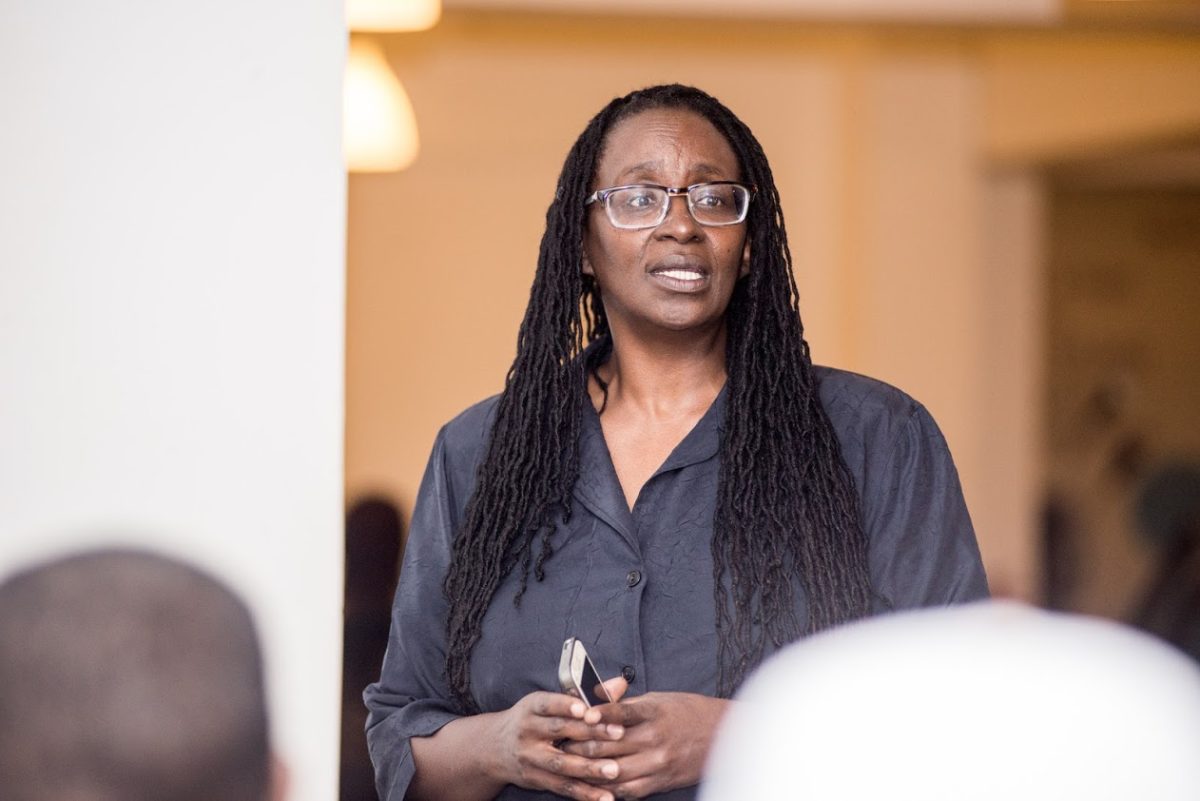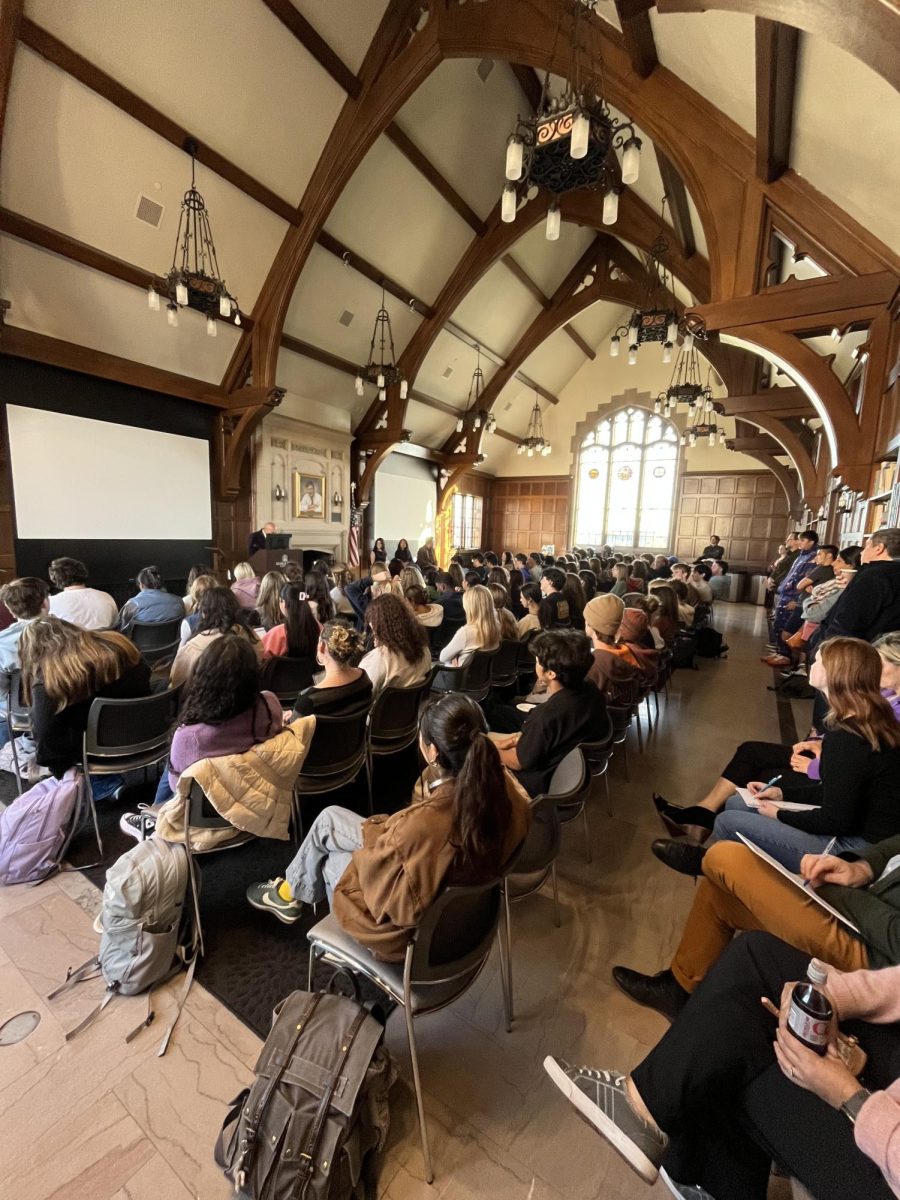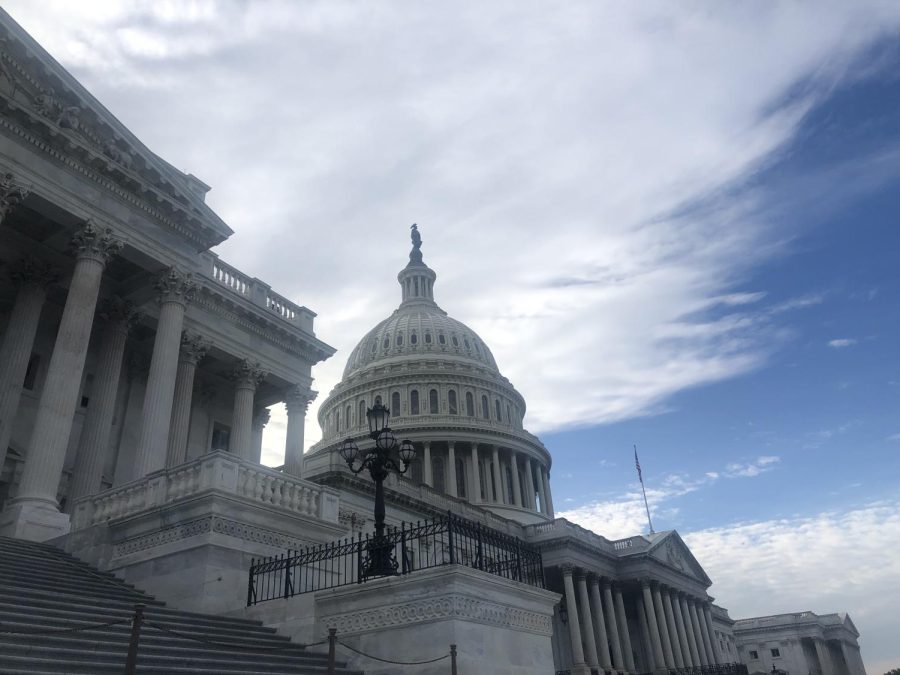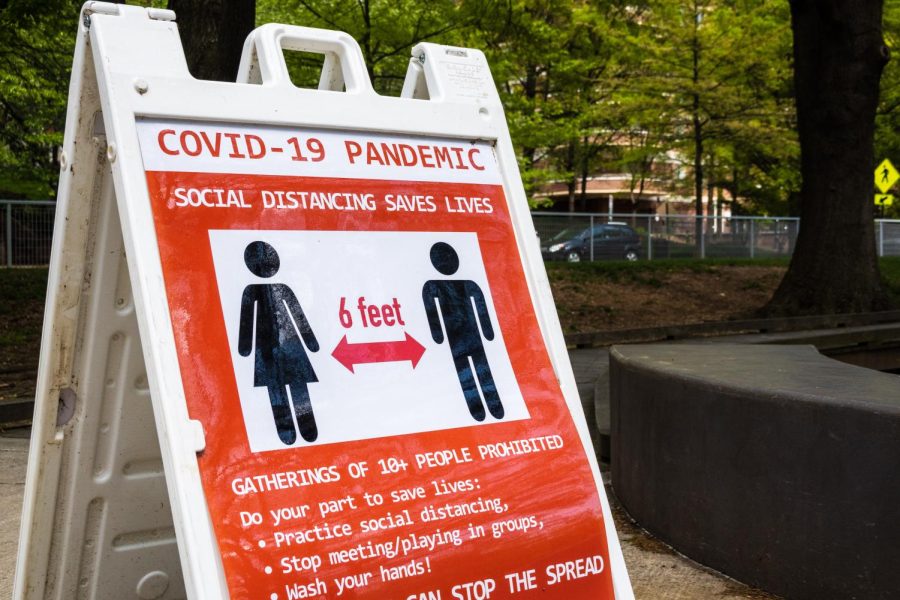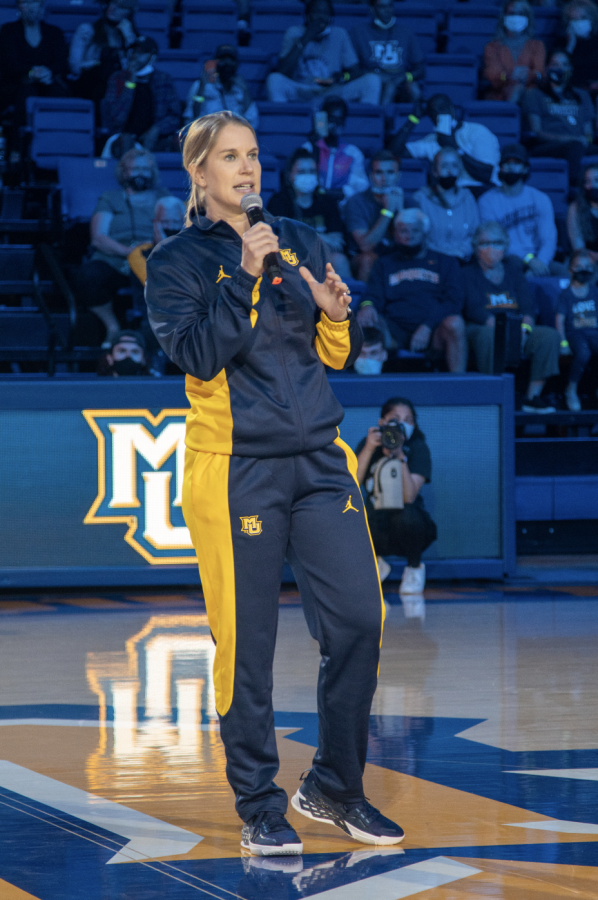Journalist Soledad O’Brien delivered Marquette University’s Nieman Lecture Feb. 26 at 4 p.m. in the Alumni Memorial Union.
O’Brien’s speech titled “Reporting on Politics in ‘Crazy Times’” covered topics of diversity, interracial relationships, local and corporate journalism, distrust in media, and news in the current political climate.
O’Brien has served as a television broadcast anchor and correspondent for networks like MSNBC, CNN and HBO. She formerly anchored CNN’s “Starting Point” from 2012 to 2013. She then went on to found Starfish Media Group in 2013, a multimedia production company. Currently, she is the host of “Matter of Fact with Soledad O’Brien.”
“I do not think that I have solved the dilemma of how we tackle reporting at a time where journalists and journalism, frankly, are under attack, but I have some thoughts,” O’Brien said, to open her speech.
The Nieman Lecture is and event hosted by J. William and Mary Diederich College of Communication and part of the Marquette Forum, a yearlong series of events focusing on civic dialogue and state of democracies across the world.
O’Brien said she is worried about journalism and the president of the United States calling journalists the enemies of the people.
“Our cause is being attacked daily by outside forces who do it with great intention,” O’Brien said. “But every day I also see lots of evidence helping those very forces along because journalism is attacking itself.”
O’Brien said journalists have gone from being trusted to being considered “fake news”. She said the phrase “fake news” has “jumped the shark quite a bit”— a phrase that reaches a point of far-fetch craziness or moves past being slightly believable.
O’Brien said the loss of coal mining jobs in general gain more attention that the loss of media jobs.
“I think the phrase ‘fake news’ has run out of its usefulness,” O’Brien said. “But there is still this feeling that we are sliding downward. It’s going to be difficult to turn around.”
O’Brien said her speech title, “Reporting on Politics in ‘Crazy Times'”, refers to her efforts to report meaningful, useful and contextual information to people.
“Crazy times —if you’re a print reporter especially— it means a landscape of layoffs and buyouts and downsizing. It’s bad,” O’Brien said.
O’Brien spoke of her televised reporting at major networks and the stories she was a part of. She spoke of opportunities and rewriting resumes when she felt like a job wasn’t allowing her to grow anymore.
O’Brien started at WBZ-TV in Boston.
“I got into news because I like to link stories,” O’Brien said. “I was removing staples from all three floors’ bulletin boards, but I loved it. I loved being a part of a team whose job was to pull together stories of the day.”
In addition to pulling staples and grabbing sandwiches, O’Brien said her goal was to learn journalism, and she knew there was more than what she was doing.
Within her speech, O’Brien spoke about her upbringing and the demographics in the journalism field. She also talked about media distrust and how the public perceives journalism in current political times.
The lecture was followed by a panel called, “Are Journalists the Enemies of the People?” that included local journalists and activists and was moderated by Dave Umhoefer, director of the O’Brien Fellowship in Public Service Journalism at Marquette University.
Umhoefer said the panel’s goal was to have a very candid discussion about the news media, the public and the public officials.
The panel included Greg Borowski, watchdog and projects editor at the Milwaukee Journal Sentinel; Louise Kiernan, editor-in-chief of ProPublica Illinois; Edgar Mendez, reporter at Milwaukee Neighborhood News Service; Orville Seymer, member of the Wisconsin Freedom of Information Council; and Markasa Tucker, director of African-American Roundtable. O’Brien was also on the panel.
Umhoefer said last year there was a poll that showed more than one in three Americans believed journalists are the ‘enemies of the people’. He said most of the agreement identified as Republican or conservative. Four in ten were independents and one in nine were Democrats, Umhoefer said.
Umhoefer asked the panel if there was a new level of distrust in the media.
“Over time, I think you’ve seen this erosion, but that maybe it’s been exacerbated in the last few years by the rhetoric and the intensity of it,” Borowski said, “But we’ve seen it in Wisconsin during the Act 10 protest back in 2011.”
Act 10 protest is also known as the Wisconsin Budget Repair Bill which was legislation proposed by then Gov. Republican Scott Walker and passed by the Wisconsin Legislature to address a projected $3.6 billion budget deficit, according to Isthmus. In response, the budget enacted protests inside and outside of the capitol.
The 2011 Wisconsin Act 10, also known as the Wisconsin Budget Repair Bill,[1] was legislation proposed by Republican Governor Scott Walker[2] and passed by the Wisconsin Legislature to address a projected $3.6 billion budget deficit
Borowski said when he started as a small community reporter in Indiana, there was a huge impediment to interact with the reporters — sometimes people would call or show up in the lobby to grab the reporter’s attention — but now there is no impediment.
“They can tweet at you, slam you on Facebook, send you a quick email,” Borowski said. “The ease that people can share their displeasure … more people are doing it and it’s being done more publicly.”
The dissolution of trust in the media is something that has spun out over decades, Kiernan said.
“I think it’s true that it’s an ongoing, long-running problem, one that has been intensified by the last couple of years by political rhetoric,” Kiernan said.
Speaking to the point of empowering relationships between the media and its audiences and sources, she said it’s true that journalists used to have the most power, but she said that has changed.
“People can tell their own stories (through social media posts),” Kiernan said.
O’Brien said she was unsure about the poll question and Umhoefer touched on what it meant to be “the enemy of the people.”
“There is a sense that there is a narrative that is to be made,” O’Brien said. “I think our audiences are very smart; they see what is happening.”
O’Brien said she can understand the frustration from the audiences.
“I don’t think ‘the enemy of the people’ is the right phrase. I think it’s more beginning to understand there are motivations, financial considerations to even think about, thought processes. It happens all the time,” O’ Brien said. “And I think that’s what people are responding to.”

